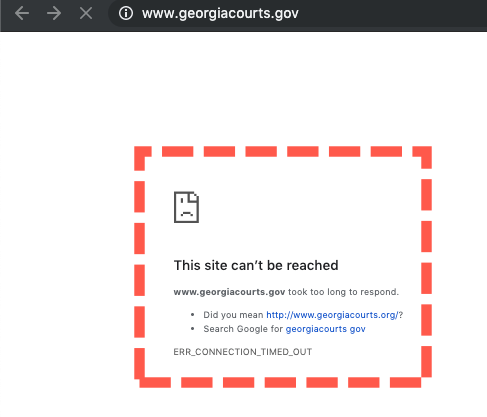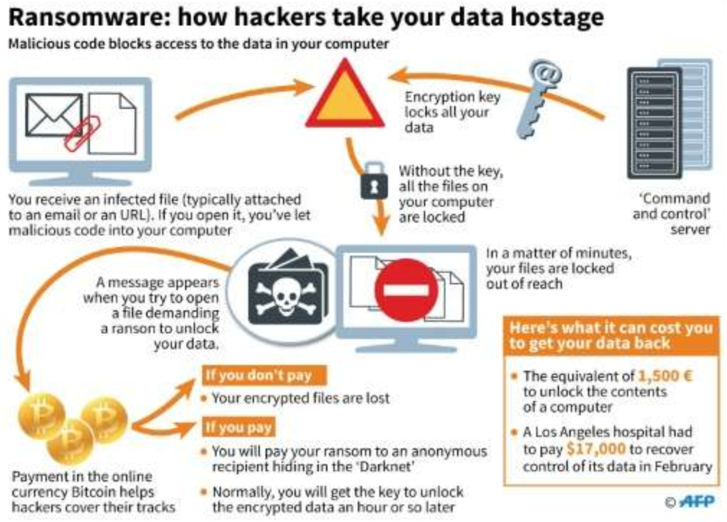Headlines started hitting the wires after 11 am Monday about a ransomware attack that has brought down Georgia Courts’ digital information operations. Officials confirmed to WXIA Atlanta that the website for Georgia’s Administrative Office of the Courts and Judicial Council of Georgia had been down all morning.
Georgia Courts spokesman Bruce Shaw said all systems hadn’t been affected, but the network as a whole was taken down to quarantine the infection. Shaw said the IT department would be meeting with “external agencies” (FBI Atlanta) on Monday afternoon to asses the severity of the attack.
Shaw didn’t disclose how much the hackers demanded to unlock an unknown amount of computers from the crippling ransomware. There was no mention of what type of payment they required if it was cryptocurrency or US dollars.
Government officials said private data isn’t stored on the systems that were affected, and that no social security or other personal information was compromised.
A ransomware attack is often software code that holds a user’s computer hostage until a “ransom” fee is paid. Ransomware often infiltrates computers as a self-replicating malware that duplicates itself to spread to uninfected computers.
This isn’t Georgia’s first ransomware attack.
Back in March 2018, the City of Atlanta was hit with ransomware that significantly disrupted government operations. In that case, Atlanta officials rejected the idea to pay the $50,000 ransom, ended up costing the city millions of dollars to recover from the incident.
In March, Georgia’s Jackson County paid hackers a $400,000 ransom payment to restore computer systems.
And currently, on Monday morning, the third city in Florida has been attacked by hackers demanding payment to restore servers. Key Biscayne joins Riviera Beach and Lake City in having its computer systems infected by ransomware after it identified a data security breach last week. In all three cities, the ransomware entered the network through an employee opening up a web link that allowed it to be uploaded.
Paying hackers to unlock ransomware isn’t advised for local governments because there’s no guarantee that a decryption key will be provided.
In Baltimore’s ransomware attack in May, hackers wanted approximately $80,00 in Bitcoin – and city officials followed protocol by rejecting the payment – has ended up costing taxpayers $18 million to restore systems.
Increasingly, Cybercriminals are taking American cities hostage, and in many cases they are getting the ransom paid out, no questions asked, confirming that most US cities across are unprepared for ransomware attacks, which ensures that such hacks will only accelerate. This is also why city-hacking will increase to more municipalities across the country into the 2020s, hitting the most vulnerable networks first, and will likely end up a key topic in the 2020 presidential elections.
via ZeroHedge News https://ift.tt/2RNnYz6 Tyler Durden

